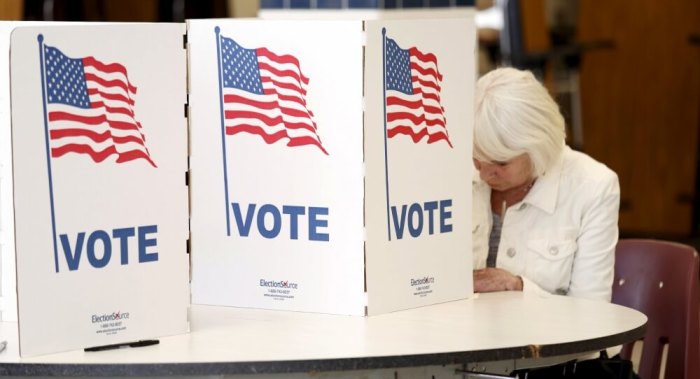Why Voting 3rd Party or Independent Isn't a Waste
Don't Vote for a Lizard

"If you vote for a third party or independent candidate, you're just wasting your vote," is one of the phrases so often repeated it's assumed true. Not only is it false, but assuming it's true weakens our democratic institutions.
Telling people that they waste their vote if they don't vote for one of the major party candidates is a dangerous mindset because it's exactly that assumption that contributes to the abysmal candidate choices that many Americans have been so upset about for many years. And it's why so many politicians are able to make promises they won't keep once they're in office.
The politicians will take advantage of you when they know you'll continue to vote for them no matter what because you think to do otherwise is a waste. Once you start thinking that way, you've become a captured voter.
"Do whatever you want when you're in office; I'll vote for you again simply because your opponent is worse," captured voters are effectively telling political candidates.
If you want your vote to matter to a party, you must be willing to abandon them.
A passage from Douglas Adams' A Hitchhikers Guide to the Galaxy has been shared often this election season and illustrates the point well.
"It comes from a very ancient democracy, you see ..."
"You mean, it comes from a world of lizards?"
"No," said Ford, who by this time was a little more rational and coherent than he had been, having finally had the coffee forced down him, "nothing so simple. Nothing anything like so straightforward. On its world, the people are people. The leaders are lizards. The people hate the lizards and the lizards rule the people."
"Odd," said Arthur, "I thought you said it was a democracy."
"I did," said Ford. "It is."
"So," said Arthur, hoping he wasn't sounding ridiculously obtuse, "why don't people get rid of the lizards?"
"It honestly doesn't occur to them," said Ford. "They've all got the vote, so they all pretty much assume that the government they've voted in more or less approximates to the government they want."
"You mean they actually vote for the lizards?"
"Oh yes," said Ford with a shrug, "of course."
"But," said Arthur, going for the big one again, "why?"
"Because if they didn't vote for a lizard," said Ford, "the wrong lizard might get in. Got any gin?"
"What?"
"I said," said Ford, with an increasing air of urgency creeping into his voice, "have you got any gin?"
"I'll look. Tell me about the lizards."
Ford shrugged again.
"Some people say that the lizards are the best thing that ever happened to them," he said. "They're completely wrong of course, completely and utterly wrong, but someone's got to say it."
"But that's terrible," said Arthur.
Besides the captured voter problem, the history of third party and independent campaigns in America illustrates well that voters can make a difference by eschewing the two major parties. Third parties don't generally win elections in America, but they have influenced public policy even without winning.
Look at this partial list: anti-slavery, temperance, direct election of senators, graduated income tax, eight hour workday, open primary elections. These were all part of third party platforms later adopted by a major party and implemented.
For a more recent example, in 1992 independent candidate Ross Perot called for giving the president line-item veto authority to help reduce federal budget deficits. This became law in 1995 before it was struck down by the Supreme Court. And Perot's opposition to NAFTA, a free trade agreement, has now been adopted by the current Republican presidential nominee.
The reason third parties, when they have sufficient support, can influence public policy without actually winning elections is that major parties adopt their platforms to attract their supporters. While third parties tend to be more ideologically driven, the two major parties mostly function to do one thing — win elections. They will look for votes wherever they can find them, including among third party supporters.
For the good of the country, voters need to get out of the mindset that voting for non-major party candidates is a waste. That's the type of thinking that put the lizards in charge in the first place.




























